Archive
2020
KubaParis
Aussicht
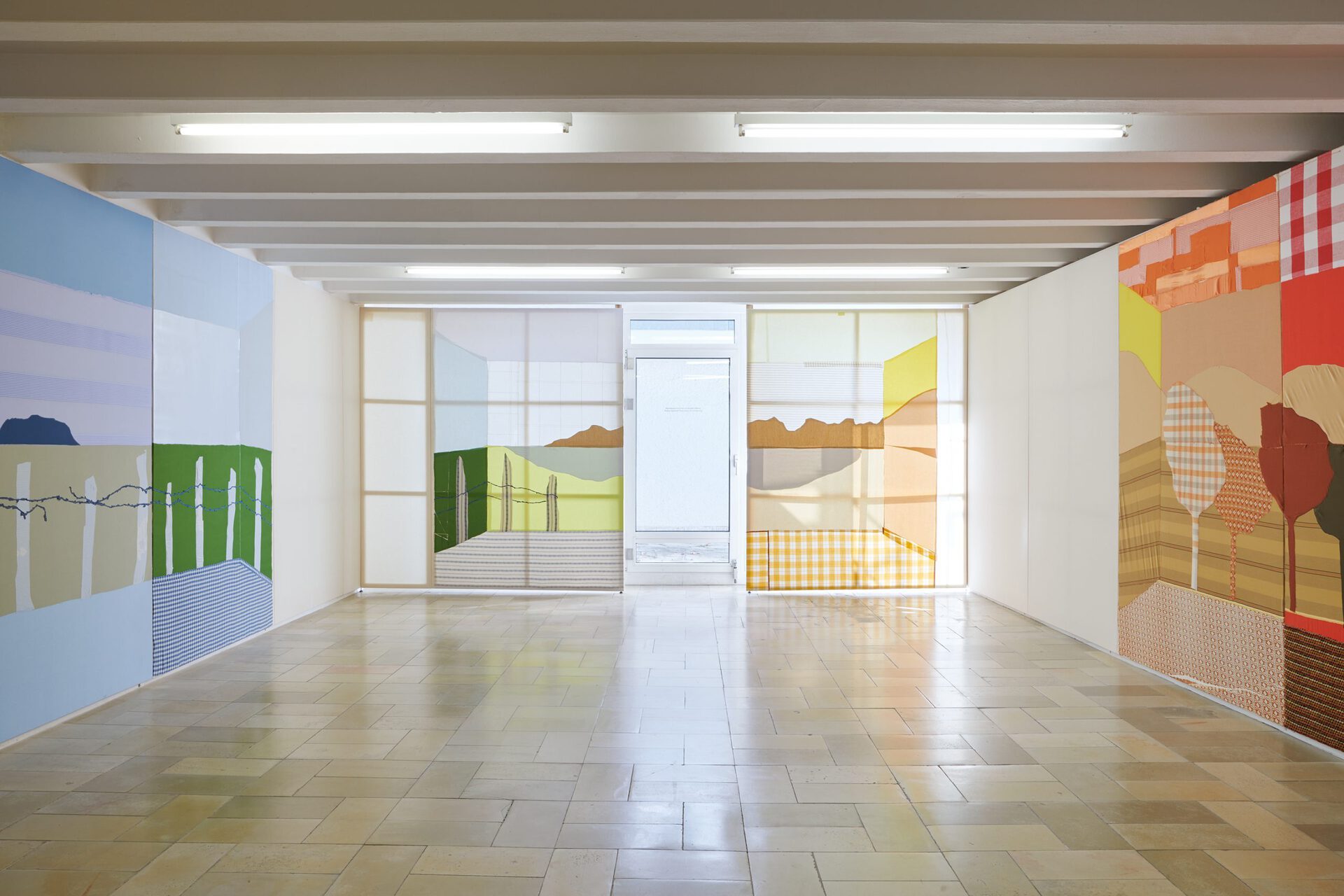
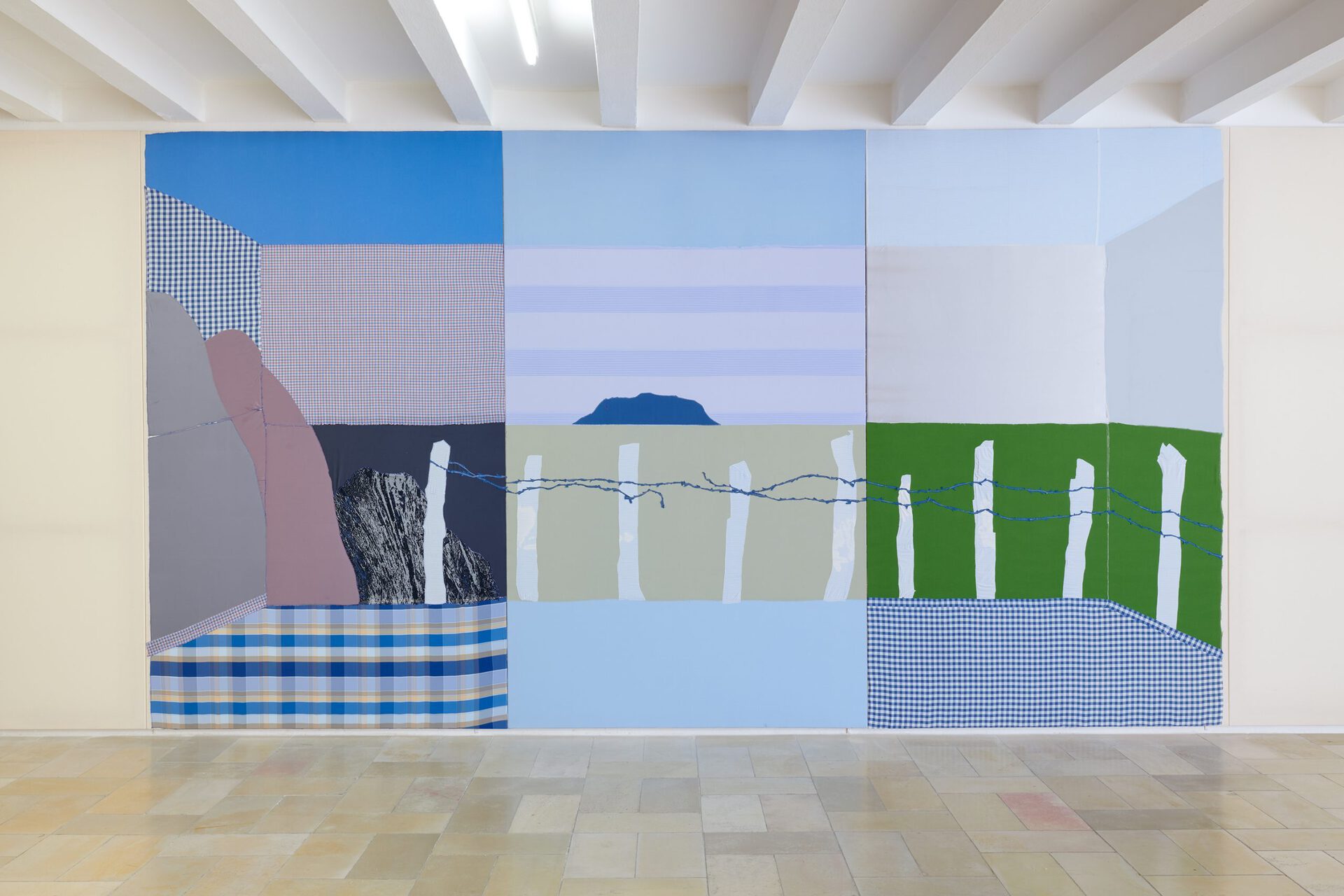
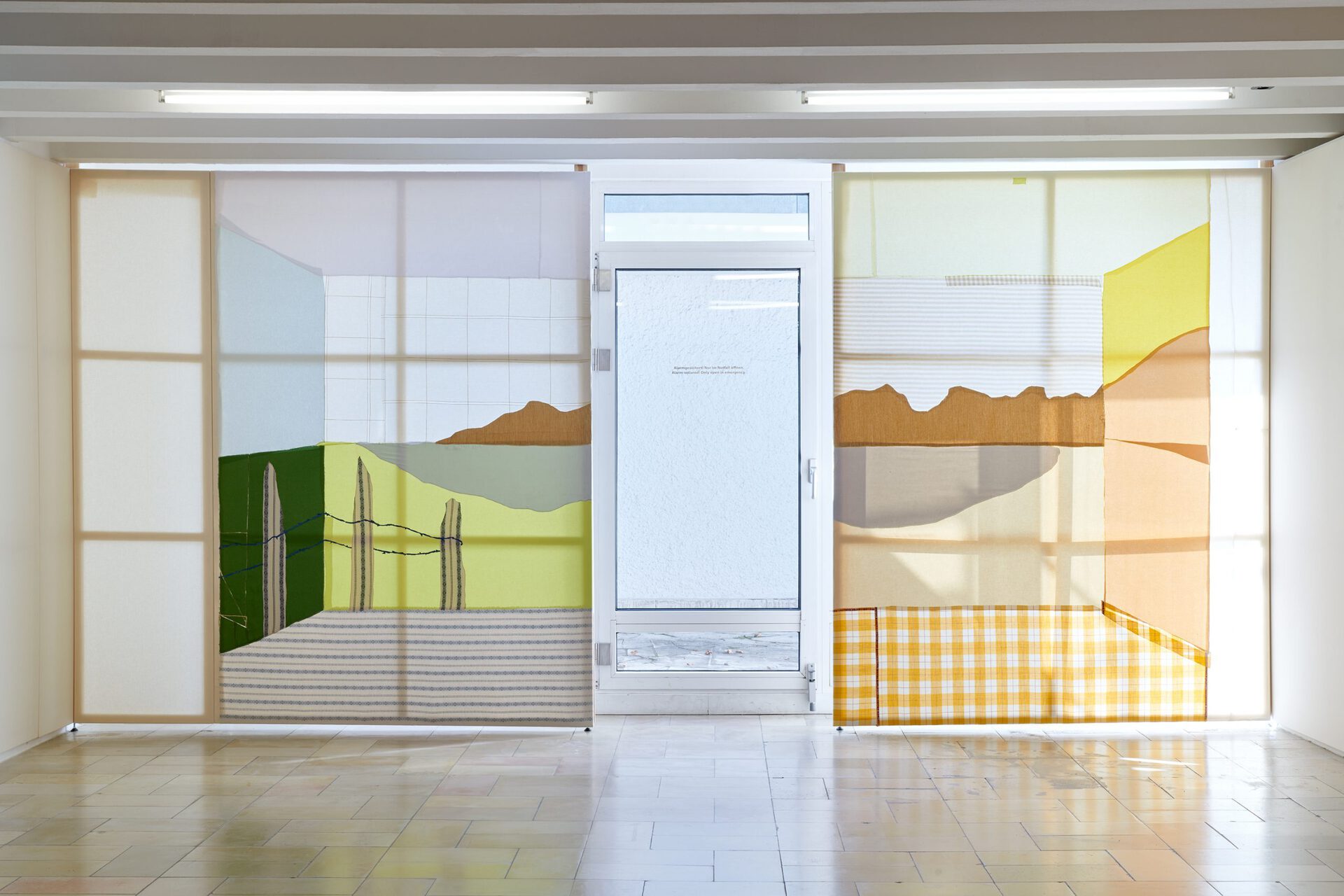
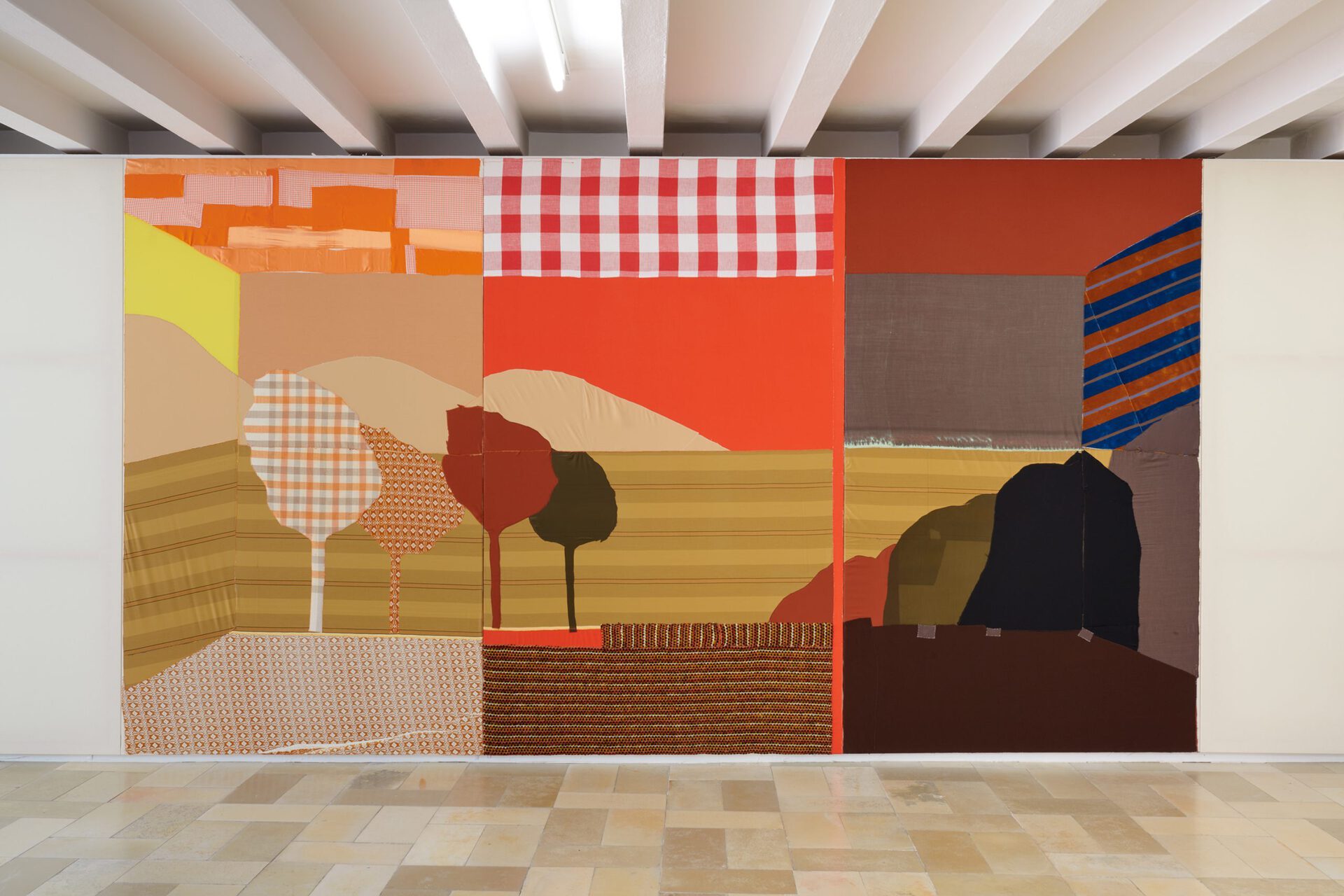
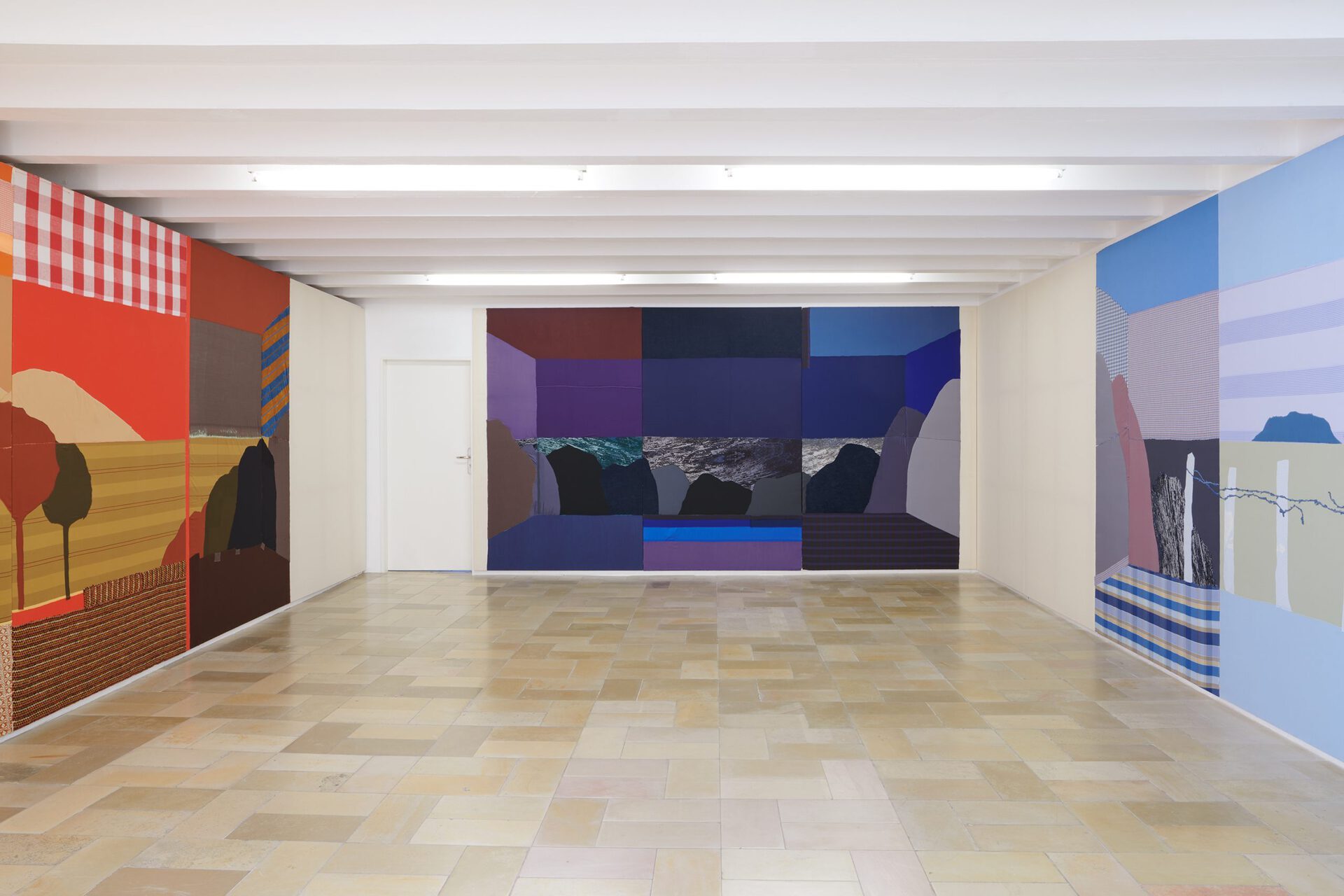
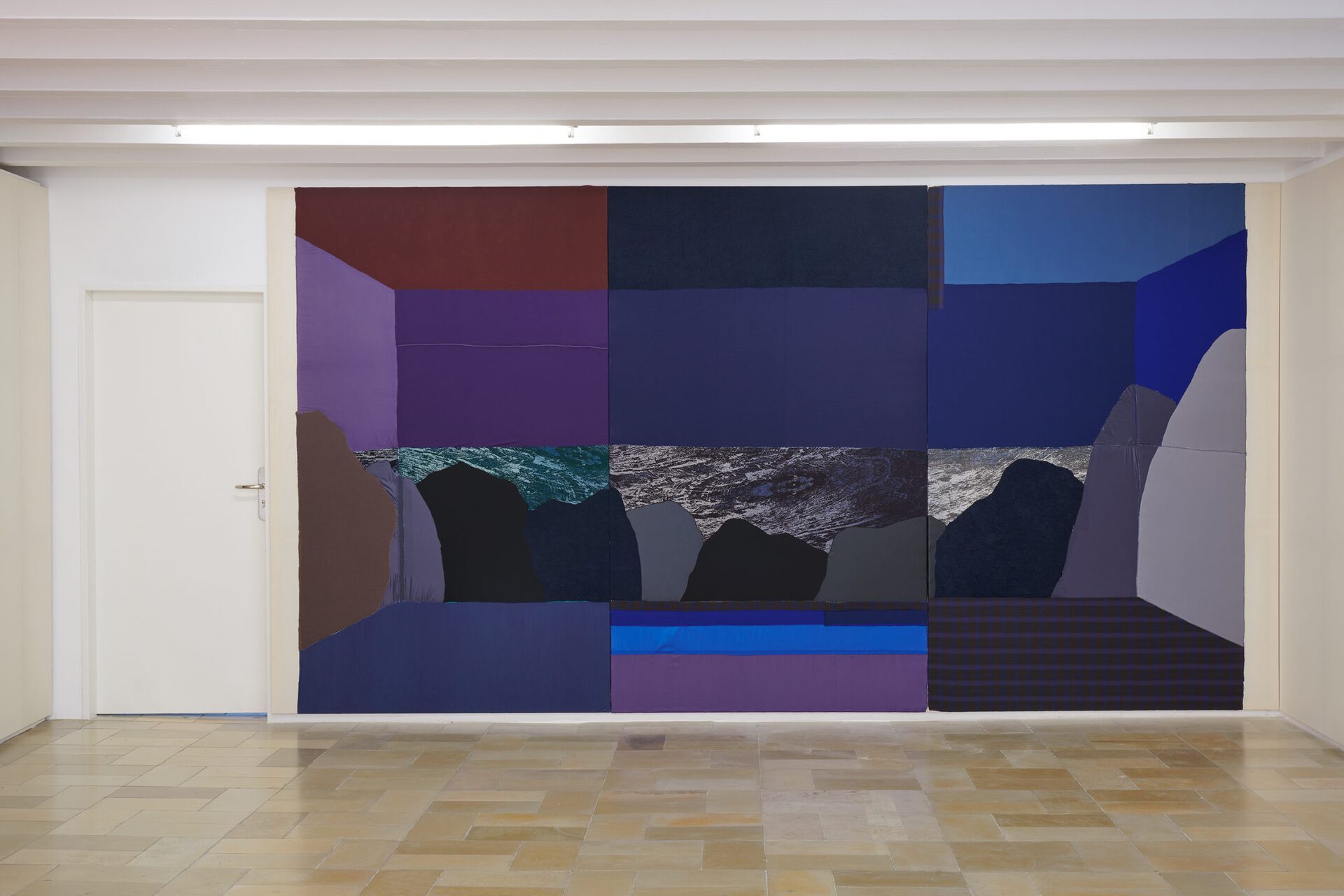
Location
Kölnischer KunstvereinDate
04.09 –17.10.2020Curator
Miriam BettinPhotography
Mareike TochaText
In her first institutional solo exhibition, Emma LaMorte takes on the architecture of the Kölnischer Kunstverein: With her textile works, performances, texts and installations, she reacts to given spaces and architectural structures in order to supplement, alienate or conceal them. In the Studio, a project room with an atrium on the second floor of the building, the artist produces an expansive quilted and sewn textile work. In reference to the location, she recreates elements of the real exterior space, integrates them into a fictional landscape backdrop and creates an inversion of inside and outside.
The four-part work series consisting of a total of eleven panels shows a rocky sea coast and a pastoral scene at four different times of day, varying in lighting mood and colour. Her motifs are based on a fascination for gothic, fantasy, kitsch, fetish, and nature romanticism. The series of works Aussicht (2020) dispenses with the figurative in favour of an allegorical landscape depiction in which the position of the viewer is that of a 360 degree perspective on an observation tower. The preoccupation with the view—the yearning look outside into the distance or the future—is a recurring subject in fine art and literature, especially at the time of German Romanticism, and immediately evokes the visual world of Caspar David Friedrichs.
The collages on stretcher frames borrowed from patchwork elude a simple classification as “textile art”: due to the rough and improvised processing, the variety of form language, haptics, and motifs as well as the nostalgic aesthetics appear exceptionally space- and timeless and are located in a dichotomy between absolute present and historicity. At the same time, the textile material is part of a craft traditionally associated with women. In her examination of economic issues, Emma LaMorte examines historically shaped gender-specific divisions of labor (emotional labor, caretaking, domesticity, household, motherhood on the one hand, monetary labor, career, profiling and prestige on the other) as well as the discrepancy between their respective values and recognition in society. Both in her medial and content-related work on traditional, reactionary gender roles, the artist looks at the mechanisms of public and private space that consolidate and maintain them: patriarchal infrastructures, discriminating labor economies, structural sexism and violence.
An artist book will be published in the context of the exhibition at the Kölnischer Kunstverein with texts by the artist Rosa Aiello and images of the exhibited works (graphic: Thomas Spallek). The text medium is an integral part of Emma LaMorte’s practice and expands the scenographic backdrop of improvised quilting techniques with narratives. The repetition of the wall panels can be found as a stylistic device in the texts of Aiello. The daily rhythm and sequence describe a domestic routine in which temporality is variably extended or shortened. Emma LaMorte questions how civilization and social structures are formed and shaped—and how they are destroyed again—and creates a vision of the future that can be promising or hopeless.
The exhibition is accompanied by a public program consisting of a reading, a lecture performance, a children‘s workshop, a tarot workshop, and a radio show by various guests, among them the artists Rosa Aiello, Bitsy Knox, Benjamin Marvin, the author Jessa Crispin and the musician Laura Sparrow.
Emma LaMorte (*1984 in Victoria B.C., Canada) lives and works in Berlin. She received a Master of Fine Arts at the Royal Institute of Art in Stockholm, Sweden. Recent solo presentations of her work have been shown at Galleri Thomassen in Gothenburg (2020, together with Anders Johansson), Gärtnergasse in Vienna (2019, together with Benjamin Marvin), Stadium (2018) and Ashley (2017), both in Berlin, as well as in group exhibitions at Polansky in Prague (2019), Braunsfelder in Cologne (2018), Sm in Marseille (2018), Hotdock in Bratislava (2018), INDUSTRA in Brno (2018) and Decad in Berlin (2018).
Curator: Miriam Bettin
The exhibition is part of Canada’s cultural programme as Guest of Honour at the Frankfurt Book Fair 2020. It is supported by the Canada Council for the Arts and the Government of Canada.
Miriam Bettin